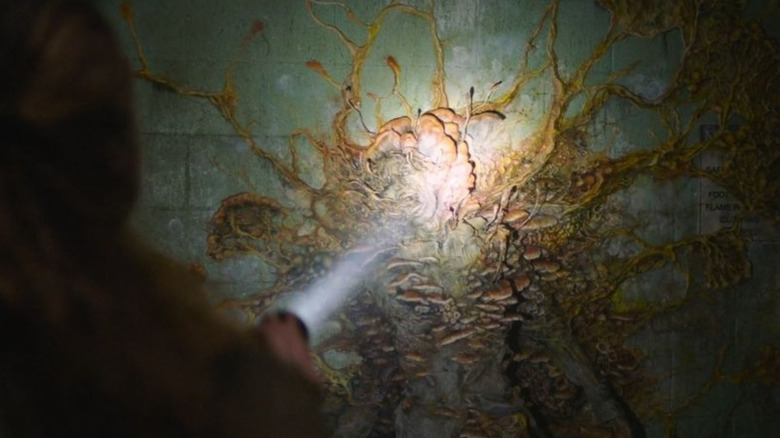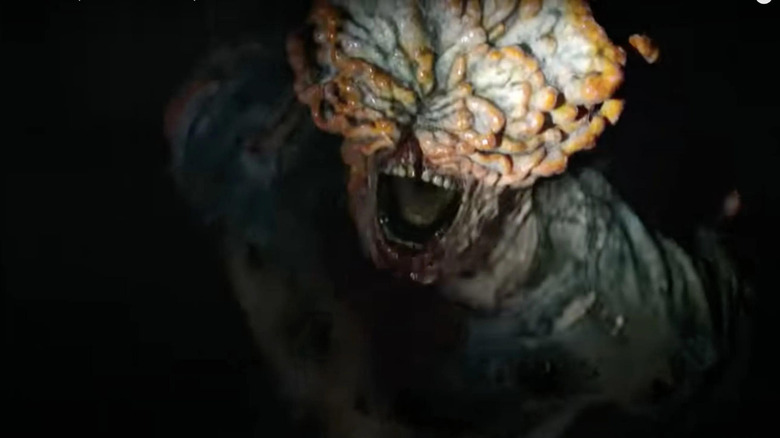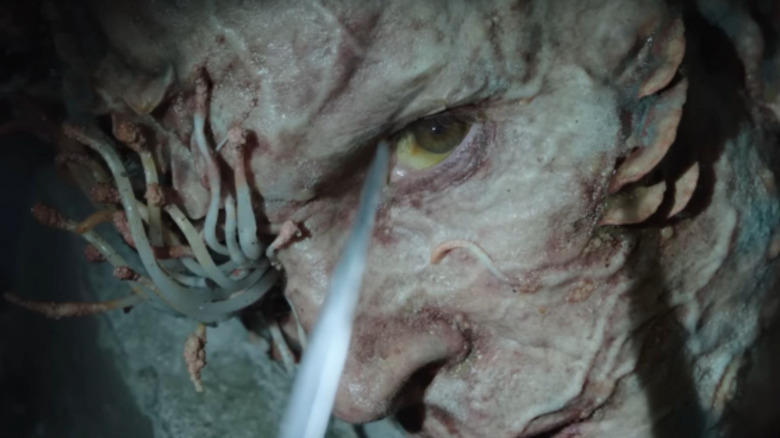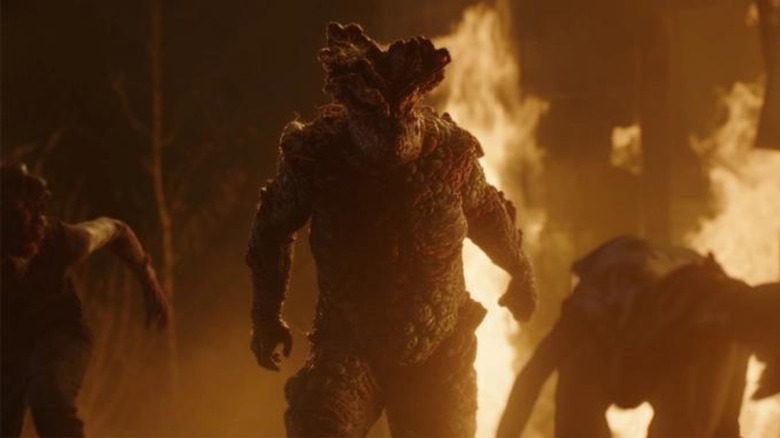The Last Of Us Cast And Crew Weren't Allowed To Use The Word 'Zombie'
At first glance, the Infected that terrorize the characters of HBO's "The Last of Us" could be confused for zombies. After all, the common perception of zombies is that of shambling, mindless corpses; even though the early 2000s saw several examples of zombies who can bolt after their prey, they were consistently uncoordinated. Of course, this is likely because they had no real brain function, but that's not really the point. The point is that zombie media has frequently abided by a couple of universal "truths" regarding the undead creatures, and on a surface level, the fungi-growing Infected might seem to follow these truths.
However, the word "zombie" was reportedly banned from being uttered on the set of the buzzy HBO adaptation. The Motion Picture Association interviewed the show's cinematographer, Eben Bolter, about bringing Naughty Dog's seminal survival horror to the small screen. During their discussion, he revealed that nobody on the show considered it to be about zombies — they were simply the Infected, and they can't be categorized under a typical umbrella term.
"We weren't allowed to say the Z word on set," Bolter said. "They were the Infected. We weren't a zombie show. Of course, there's tension building and jump scares but the show's really about our characters; The Infected are an obstacle they have to deal with."
A game of distinguishment
This wouldn't be the first time a prominent piece of genre media has distanced itself from the term "zombie." Perhaps the most significant example was "The Walking Dead," which drew clear inspiration from classic zombie media but always shied away from that specific term. In that show, the corpses wandering around the countryside were known as Walkers. Sounds pretty straightforward, especially since they offered a reprieve from the then-popular sprinting zombies. However, for "Walking Dead" creator Robert Kirkman, they avoided the term in order to flesh out (see what we did there?) the comic and show's worlds.
"We wanted to give you a sense that 'The Walking Dead' takes place in a universe where zombie fiction doesn't exist," Kirkman explained to talk show host Conan O'Brien. "No one inside 'The Walking Dead' has seen a Romero movie, so they can't get the rules from that. We felt like having people not use that word would separate it from that a little bit, making it a little bit clearer."
Getting by on a technicality
However, it's also not fair to compare the Infected from "The Last of Us" to the Walkers of "The Walking Dead." That's because the Walkers had all passed away before being reanimated. In the case of the Infected, they never actually die. Rather, the Cordyceps infection essentially eats its victims alive, controlling their brain so that almost all cognitive function is lost. This means that, although almost all of a victim's humanity is eaten away by Cordyceps, the Infected are technically still alive. It's just that a fungus is controlling its every move. We saw glimpses of this back in the show's third episode when Ellie (Bella Ramsey) killed one in the basement of an abandoned Cumberland Farms.
If there is any other pseudo-zombie the Infected in "The Last of Us" can be more charitably compared to, it's those from "28 Days Later" and "28 Weeks Later." In those two movies, the "zombies" are infected with Rage, a man-made virus that almost immediately turns its victims into rabid monsters. Like the Infected in "The Last of Us," Rage victims are still human and alive, but the virus has essentially made them lose everything that makes them identify as such. It isn't a perfect comparison, as people with Rage are able to die of starvation relatively quickly, but it helps support the idea that the Infected still being human despite their current state isn't a new thing in "zombie" media.
Not using the word 'zombie' rehumanizes the Infected
As Bolter told the MPA in his interview, the Infected are more considered obstacles than active threats to its two main characters. While they are extremely dangerous, "The Last of Us" is hugely about character development. As it turns out, the idea of making the Infected still at least a little bit human fits into that ideology in a perfect way.
By emphasizing the importance of humanity throughout the video game and the show, it also rehumanizes the Infected. None of the Infected deserve to have their minds and bodies taken over, so their deaths would actually be kinder than forcing them to live in their current state. At least zombies were reanimated from the dead before they began their reign of terror. It may have been a bit dramatic to ban the word "zombie" from the set of "The Last of Us," (and we're still not one hundred percent sure if that banning was literal or figurative), but the team behind the show knows exactly what to do to make a subversion of this classic trope continually compelling after so many years and franchises.



